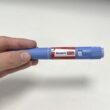Know which medicines and herbal remedies can affect your blood pressure.
By Mayo Clinic Staff
Accessed on May 2023
Some medicines, supplements and other substances affect blood pressure.
Some raise your blood pressure. Others make medicines you take to lower your blood pressure less effective. Some medicines that affect blood pressure are prescribed by your health care provider. Others are available without a prescription.
Here are some medicines, supplements and other substances that can raise blood pressure. If you use any of them and you’re worried about how they affect your blood pressure, talk to your health care provider.
Pain medications
Some pain medicines cause the body to hold onto water. So do medicines that fight swelling in the body.
Too much water in the body may create kidney problems and raise blood pressure. Examples include:
- Indomethacin (Indocin).
- Medicines available without a prescription such as aspirin (multiple doses a day), naproxen sodium (Aleve) and ibuprofen (Advil, Motrin IB, others).
- Piroxicam (Feldene).
Have your blood pressure checked on a regular basis. Talk to your health care provider about which pain medicine is best for you. If you take a pain medicine that raises your blood pressure, lifestyle changes and additional medicines may help control your blood pressure.
Cold medicines, also called decongestants
Decongestants make blood vessels smaller. This makes it harder for blood to flow through the blood vessels. Sometimes that raises blood pressure. Decongestants also may make some blood pressure medicines not work as well. Examples of decongestants include:
- Pseudoephedrine (Sudafed 24 Hour).
- Phenylephrine (Neo-Synephrine).
Check the label of your cold or allergy medicine to see if it has a decongestant. If you have high blood pressure, it’s best to stay away from decongestants. Ask your health care provider about cold products available without a prescription that are made for people with high blood pressure.
Antidepressants
Antidepressants work by changing the body’s response to brain chemicals that affect mood. These chemicals also may raise blood pressure. Examples of antidepressants that can raise blood pressure include:
- Monoamine oxidase inhibitors.
- Tricyclic antidepressants.
- Selective serotonin reuptake inhibitors.
If you take antidepressants, have your blood pressure checked regularly. If your blood pressure goes up or isn’t well controlled, ask your health care provider about other medicines you could take.
Birth control with hormones
Birth control pills and some birth control devices contain hormones. These hormones may raise blood pressure by making some blood vessels smaller. This makes it harder for blood to flow. Most birth control pills, patches and other devices carry warnings that high blood pressure may be a side effect. The risk of high blood pressure is higher if you’re older than age 35, overweight or a smoker.
Hormonal birth control may not raise blood pressure in all people. But if you’re worried, have your blood pressure checked at least every six months.
If you already have high blood pressure, talk to your health care provider. Ask about using a different form of birth control. A birth control pill or device that has a lower dose of estrogen is less likely to raise blood pressure.
Caffeine
Caffeine can cause a short-term spike in blood pressure in people who don’t use it all the time.
Caffeine helps to keep blood vessels open. This allows blood to easily pass through blood vessels. This may raise blood pressure for a short period of time. There isn’t enough evidence to prove that caffeine raises blood pressure long term.
Examples of medicines and products with caffeine include:
- Caffeine pills (Vivarin, NoDoz, others).
- Coffee.
- Energy drinks and other beverages.
The amount of caffeine in coffee varies widely. So it’s difficult to say how many cups of coffee you can drink a day.
You can see if caffeine raises your blood pressure. Check your blood pressure about 30 minutes after drinking a cup of coffee or another beverage that has caffeine. If your blood pressure goes up by 5 to 10 points, you may be sensitive to caffeine’s effect on blood pressure.
Herbal supplements
Remember to tell your health care provider about any herbal supplements you take. Ask about any supplements you’re thinking about taking. Examples of herbal supplements that may affect your blood pressure or blood pressure medicines include:
- Arnica (Arnica montana).
- Ephedra (ma-huang).
- Ginseng (Panax quinquefolius, Panax ginseng).
- Guarana (Paullinia cupana).
- Licorice (Glycyrrhiza glabra).
Herbal supplements may not be safe just because they’re natural. Check with your health care provider before taking any herbal supplements. You may need to avoid supplements that raise your blood pressure or make your blood pressure medicines less effective.
Biological therapies
Powerful medicines used in biological therapies can have side effects. One of those side effects is high blood pressure. Some of these medicines target specific cells. Others use the body’s own immune system to fight some autoimmune diseases and cancers.
Angiogenesis inhibitors and some monoclonal antibodies may raise blood pressure. Examples of these medicines include:
- Bevacizumab (Avastin).
- Gefitinib (Iressa).
- Imatinib (Gleevec).
- Pazopanib (Votrient).
- Ramucirumab (Cyramza).
Immunosuppressants
Most people who’ve had an organ transplant take immunosuppressants. These medicines help keep the body from rejecting the new organ. Some immunosuppressants can raise blood pressure. This may be due to the ways immunosuppressants affect the kidneys.
Examples of immunosuppressants that can raise blood pressure include:
- Cyclosporine (Gengraf, Neoral, Sandimmune).
- Tacrolimus (Astagraf XL, Prograf, Envarsus XR).
Have your blood pressure checked on a regular basis. If your blood pressure goes up or isn’t well controlled, ask your health care provider about other medicines you can take. Your health care provider may recommend lifestyle changes or additional medicines to control your high blood pressure.
Stimulants
Stimulants, such as methylphenidate (Concerta, Ritalin, others), can cause the heart to beat faster or unevenly. This may raise blood pressure.
Have your blood pressure checked regularly if you take a stimulant. If your blood pressure goes up or isn’t well controlled, ask your health care provider about other medicines you can take. Lifestyle changes or additional medicines may help control your high blood pressure.
A caution on illegal drugs
Illegal drugs can raise blood pressure. They may narrow the arteries that supply blood to the heart. This raises heart rate and damages heart muscle.
Examples of illegal drugs that may affect your heart include:
- Amphetamines, including methamphetamine.
- Cocaine.
- Ecstasy (MDMA).
If you’re using illegal drugs, it’s important to stop. Ask your health care provider for information on counseling or drug treatment programs.
References
- Hwang AY, et al. Use of prescription medications that potentially interfere with blood pressure control in new-onset hypertension and treatment-resistant hypertension. American Journal of Hypertension. 2018; doi:10.1093/ajh/hpy118.
- Flack JM, et al. Blood pressure and new ACC/AHA hypertension guidelines. Trends in Cardiovascular Medicine. 2019; doi:10.1016/j.tcm.2019.05.003.
- Basile J, et al. Overview of hypertension in adults. https://www.uptodate.com/contents/search. Accessed Dec. 27, 2022.
- Pathan MK, et al. Resistant hypertension: Where are we now and where do we go from here? Integrated Blood Pressure Control. 2020; doi:10.2147/IBPC.S223334.
- Understanding over-the-counter (OTC) medications and high blood pressure. American Heart Association. https://www.heart.org/en/health-topics/high-blood-pressure/changes-you-can-make-to-manage-high-blood-pressure/understanding-overthecounter-otc-medications-and-high-blood-pressure. Accessed Dec. 27, 2022.
- Foy MC, et al. Drug-induced hypertension. Endocrinology & Metabolism Clinics of North America. 2019; doi:10.1016/j.ecl.2019.08.013.
- Townsend RR. NSAIDs and acetaminophen: Effects on blood pressure and hypertension. https://www.uptodate.com/contents/search. Accessed Dec. 27, 2022.
- Basile J, et al. Contraception: Hormonal contraception and blood pressure. https://www.uptodate.com/contents/search. Accessed Dec. 27, 2022.
- Giardina E-G. Cardiovascular effects of caffeine and caffeinated beverages. https://www.uptodate.com/contents/search. Accessed Dec. 27, 2022.
- Martini D, et al. Effect of coffee and cocoa‑based confectionery containing coffee on markers of cardiometabolic health: results from the pocket‑4‑life project. European Journal of Nutrition. 2020; doi:10.1007/s00394–020–02347–5.
- Chebib FT (expert opinion). Mayo Clinic. Dec. 30, 2022.
- Arnica. Natural Medicines. https://naturalmedicines.therapeuticresearch.com. Accessed Dec. 27, 2022.
- Kellerman RD, et al. Popular herbs and nutritional supplements. In: Conn’s Current Therapy 2022. Elsevier; 2022. https://www.clinicalkey.com. Accessed Dec. 27, 2022.
- Panax ginseng. Natural Medicines. https://naturalmedicines.therapeuticresearch.com. Accessed Dec. 27, 2022.
- American ginseng. Natural Medicines. https://naturalmedicines.therapeuticresearch.com. Accessed Dec. 27, 2022.
- Guarana. Natural Medicines. https://naturalmedicines.therapeuticresearch.com. Accessed Dec. 27, 2022.
- Targeted cancer therapies. National Cancer Institute. https://www.cancer.gov/about-cancer/treatment/types/targeted-therapies/targeted-therapies-fact-sheet. Accessed Dec. 27, 2022.
- Angiogenesis inhibitors. National Cancer Institute. https://www.cancer.gov/about-cancer/treatment/types/immunotherapy/angiogenesis-inhibitors-fact-sheet. Accessed Dec. 27, 2022.
- Liu B, et al. Incidence and risk of hypertension associated with vascular endothelial growth factor receptor tyrosine kinase inhibitors in cancer patients: a comprehensive network meta-analysis of 72 randomized controlled trials involving 30013 patients. Oncotarget. 2016; doi:10.18632/oncotarget.11813.
Originally published at https://www.mayoclinic.org.




